Join the Free 7-Day Mindfulness Challenge
Join 1600+ people who have completed this challenge! You'll get 7 short daily exercises via email to build essential mindfulness skills.
Popular Printable Mindfulness Activities
Popular Articles
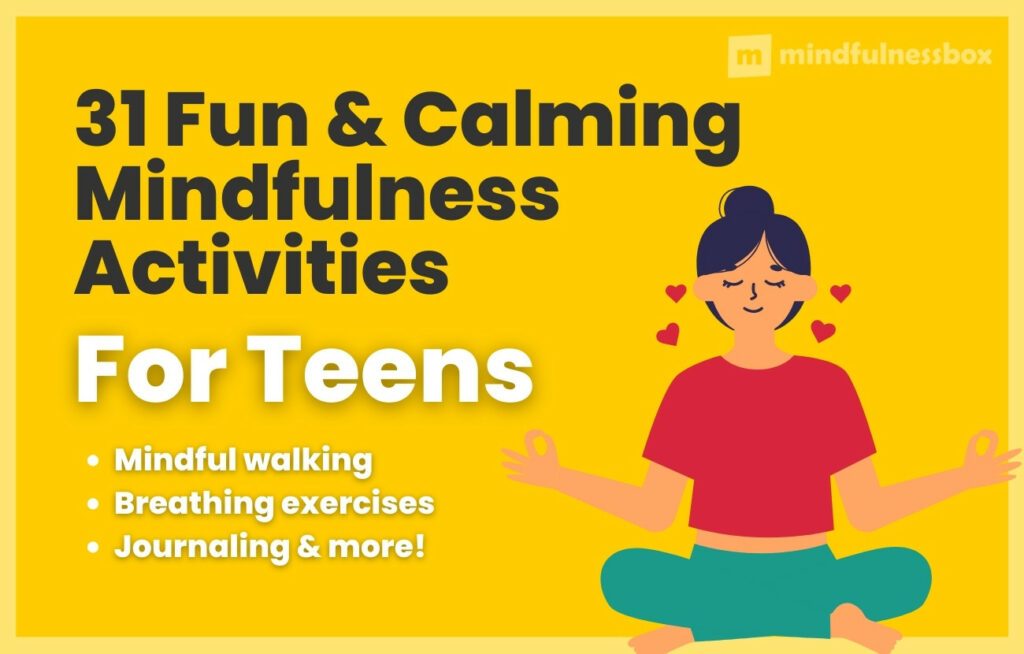
31 Fun & Calming Mindfulness Activities for Teens
Mindfulness activities for teens are similar to the activities you’d practice as an adult. But it’s important to put them in a context teenagers are interested in. That means you need mindfulness activities for teens that are relevant to their lives (like meditating to make studying easier) or doing exercises that spark curiosity (like mindful…
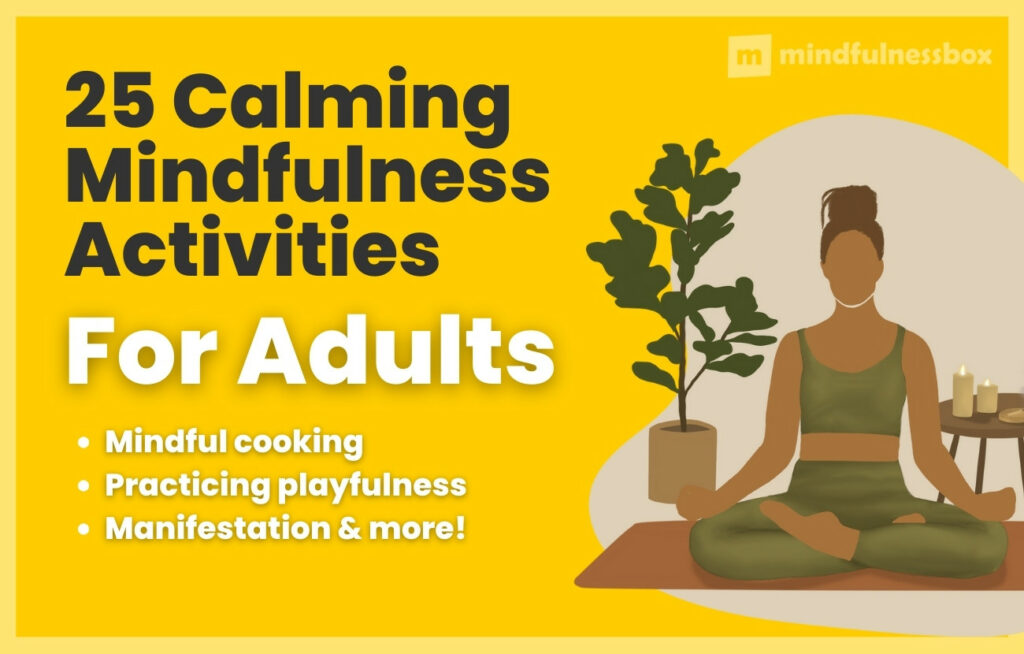
25 Quick Mindfulness Activities for Adults (+ PDF)
Mindfulness activities for adults are much more diverse than the typical activities we think of first, like seated meditation and yoga. From gratitude to self-compassion, from mindful eating to mindful hugs, the options for incorporating mindfulness into your everyday life are endless. Mindfulness is such a vast topic that sometimes it’s hard to know where…
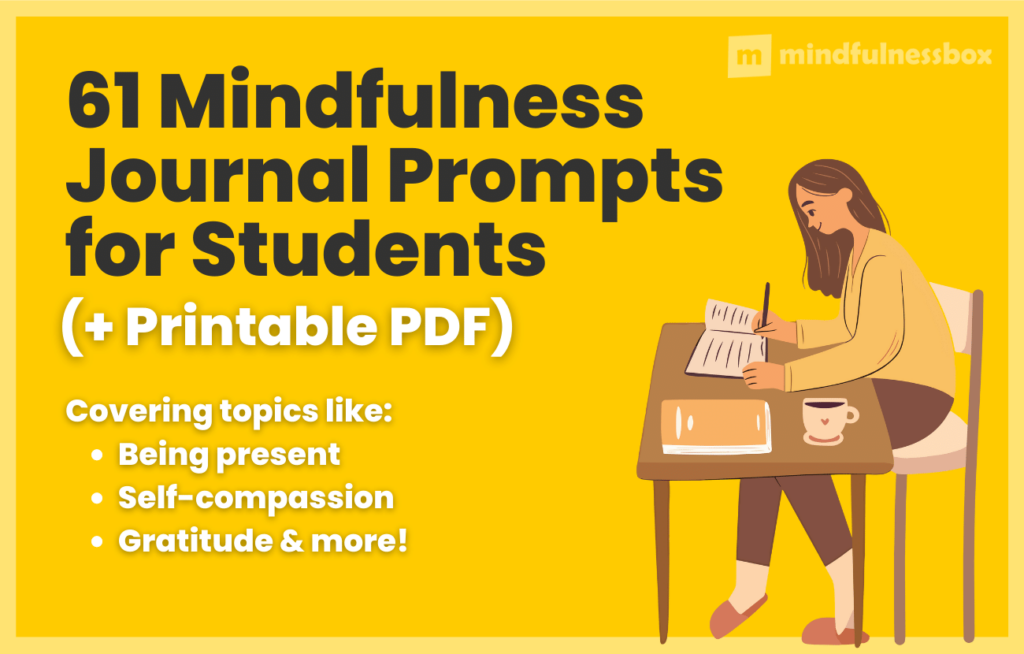
61 Mindfulness Journal Prompts for Students (+ Printable PDF)
Mindfulness journal prompts, together with a mindfulness journal, are tools to help students understand how they’re feeling. Teachers often use mindfulness questions for students as a framework to give students another way to understand themselves, and to get in touch with their emotions. It’s hard to know how you’re feeling sometimes. Journaling is an excellent tool for…
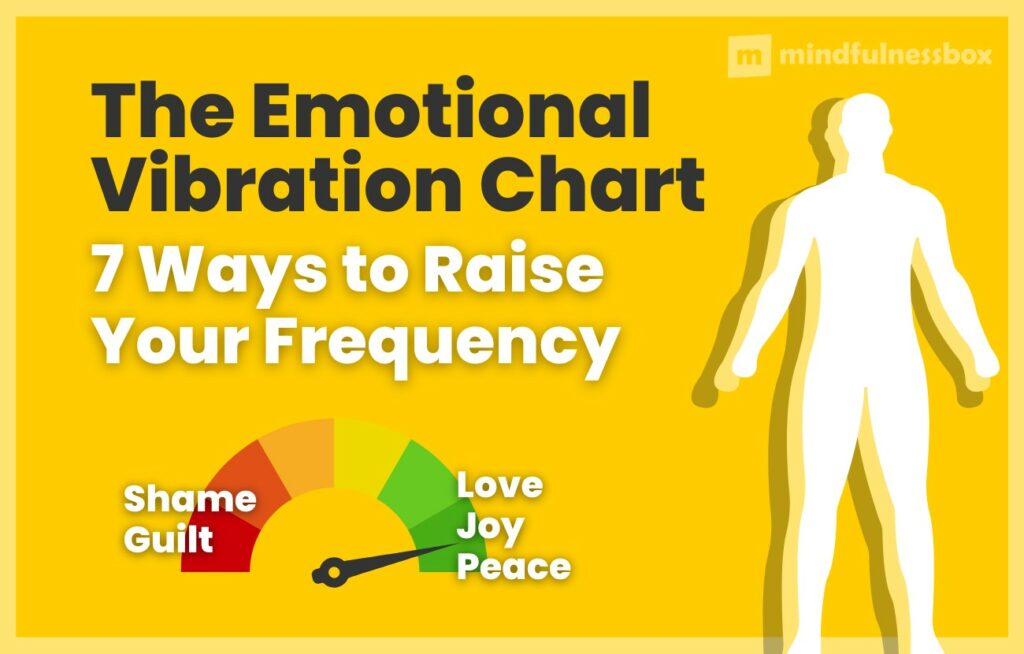
The Emotional Vibration Chart: 7 Ways to Raise Your Frequency
The Emotional Vibration Chart maps the range of human emotions to higher and lower frequencies. Peace and joy are higher vibration emotions, while shame and guilt are lower vibration emotions. By using the chart, you can understand which emotions are “higher vibration” and start to cultivate more of those in your life. You’ve heard people…
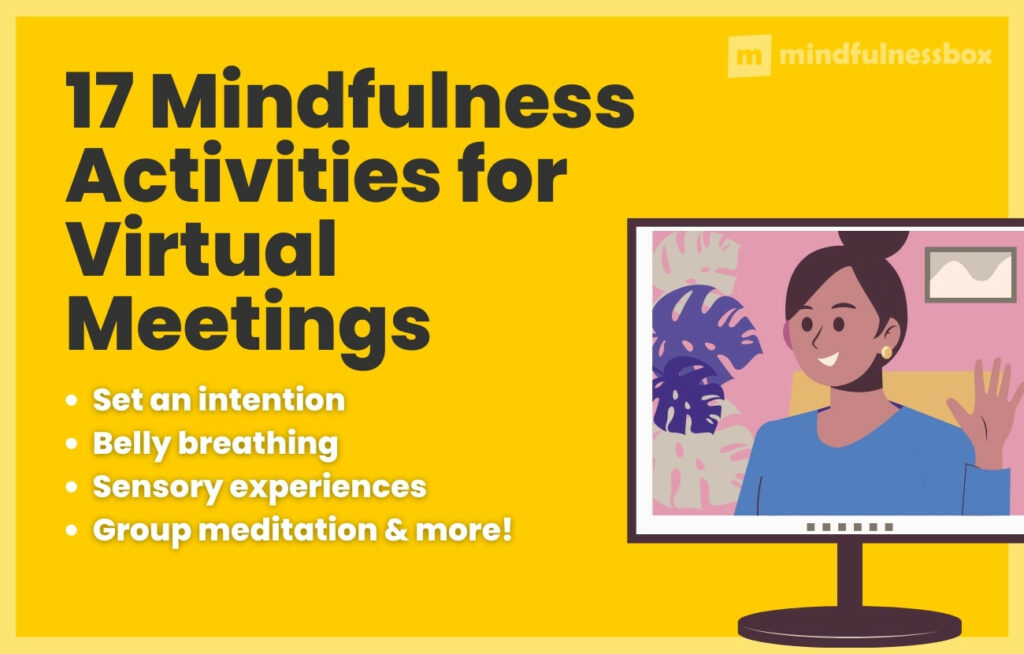
17 Mindfulness Activities for Virtual Meetings (For Zoom & More)
Virtual meetings can be chaotic. Whether you’re trying to manage a virtual classroom full of students, running a business meeting, or conducting a remote seminar, mindfulness can help. Try including mindfulness exercises to start a meeting, or to reset a meeting’s energy in the middle of long sessions. Right now, at this very minute, thousands…
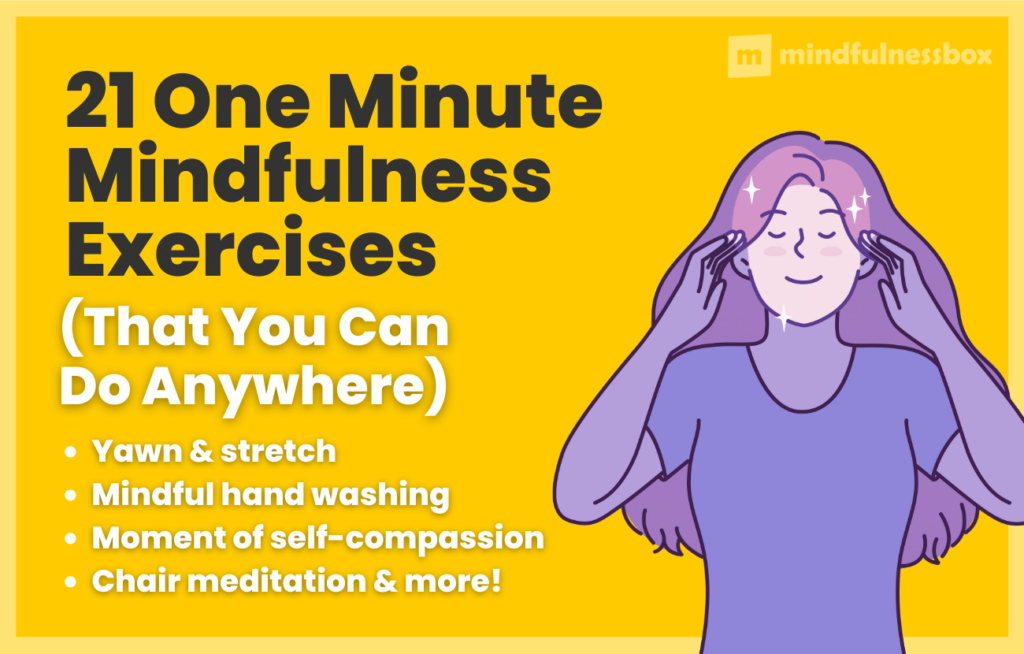
21 Quick Mindfulness Exercises (Less Than One Minute Each)
A one minute mindfulness exercise is anything you can do in 60 seconds or less to center yourself, ground yourself, and pull yourself into present awareness. These short mindfulness exercises help you incorporate the principles of mindfulness into your life — especially when you’re short on time. In an ideal world, every day we would…
Recent Articles
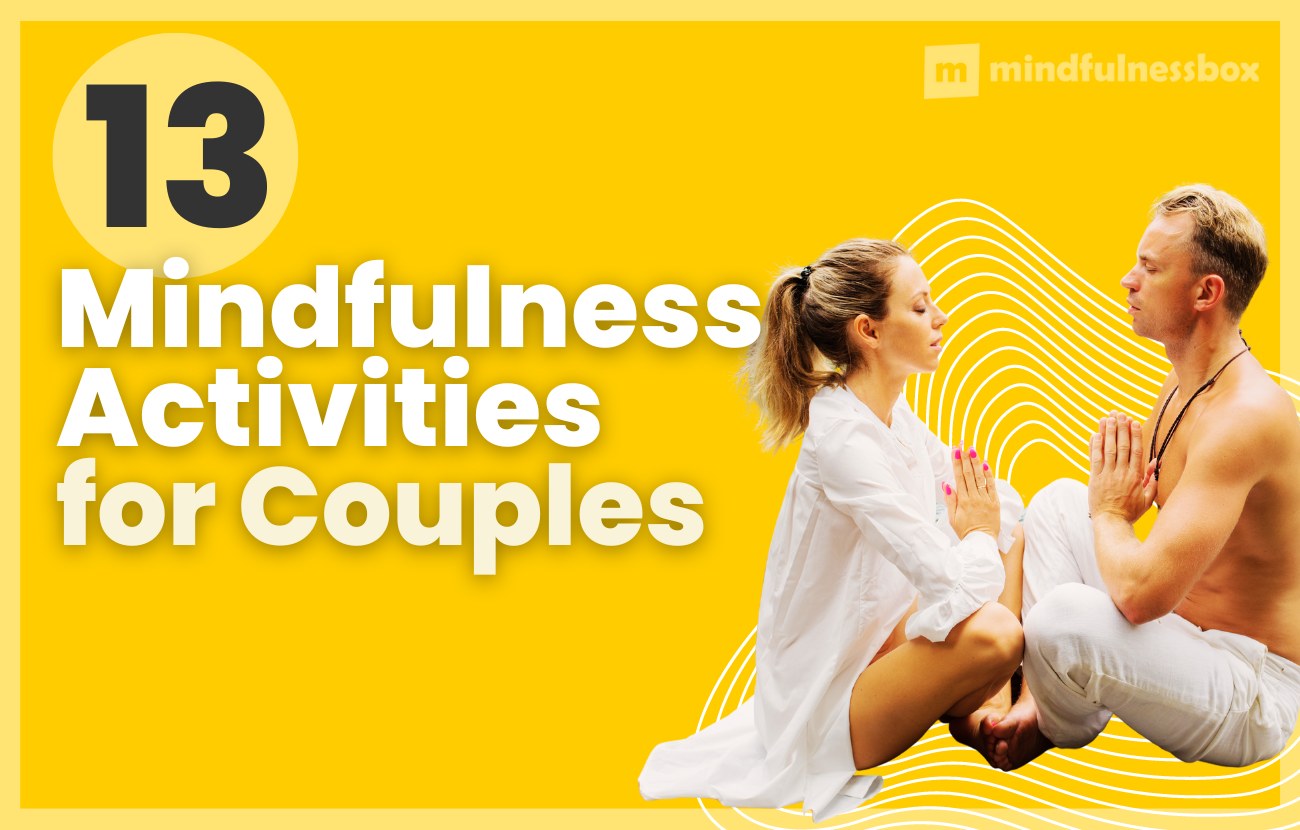
13 Mindfulness Activities For Couples
Connecting with your partner requires intention and presence—things that can be challenging to cultivate in our busy modern lives. Mindfulness activities for couples help you and your partner enhance your bond by being fully engaged with each other. Practicing mindfulness techniques together offers a number of benefits for couples. Mindfulness activities can reduce stress, increase…
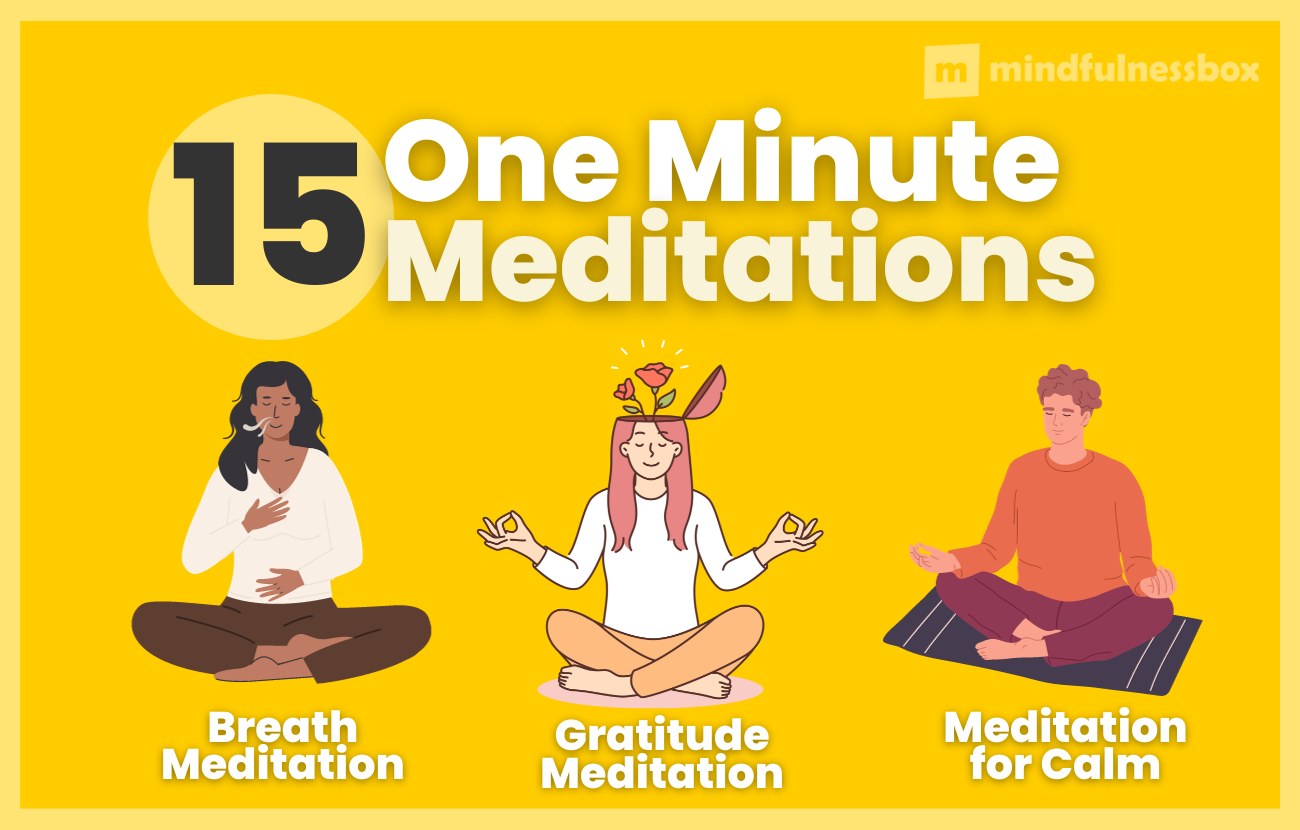
15 One Minute Meditations (For A Quick Reset)
A one minute meditation is any practice you can do in 60 seconds or less to calm your mind, connect inward, and pull yourself into present awareness. These short meditations help you incorporate reflection into busy days — especially when you feel too overwhelmed for longer sessions. In an ideal world, we’d all have time…

7 Ways to Train Yourself to Be More Grateful
Every year, a handful of countries around the world celebrate Thanksgiving—an annual excuse for family togetherness, and a reminder to be grateful for what we have. When I was growing up, we got together with my extended family for Thanksgiving dinner. Before eating, everyone went around the table and read a gratitude-related quote. (For example,…
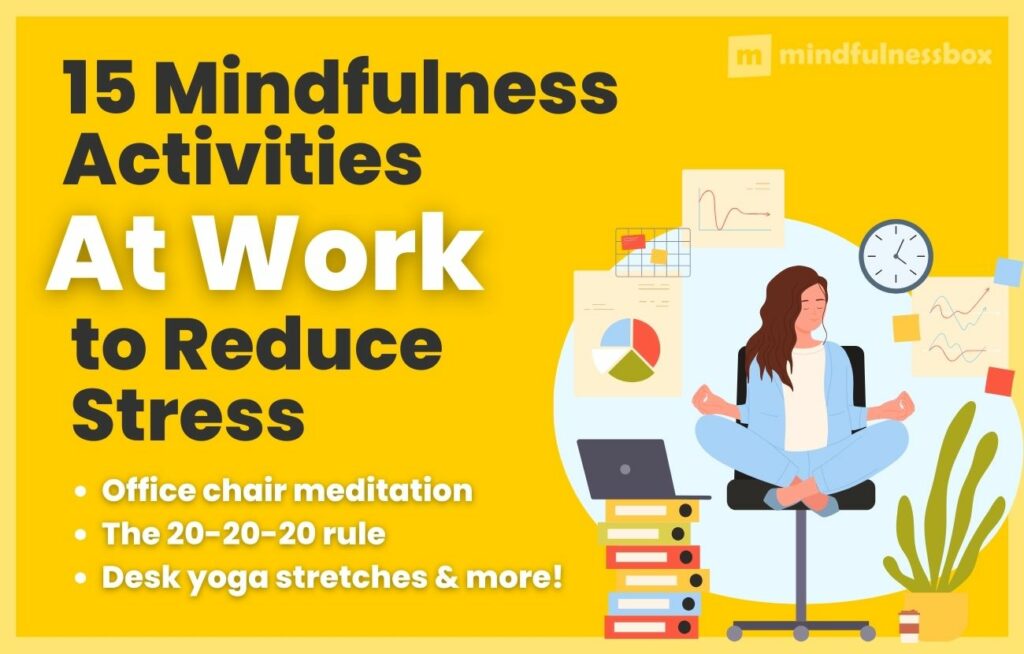
15 Mindfulness Exercises At Work To Reduce Stress Fast
Mindfulness exercises at work have a few requirements: you need to be able to do them in a professional environment; they need to be quick; and they need to be simple enough to remember them when you need them. This list of workplace mindfulness exercises is full of stress-reducing exercises you can do in three…

101 Fun Journal Prompts for Kids Of All Ages
It’s never too early to teach journaling skills. Journal prompts for kids are one of the best ways to help all children, from elementary students to high schoolers, navigate how they’re feeling. As a parent or a teacher, providing prompts can help kids conquer the blank page while providing essential structure that teaches key mindfulness and…

If Your Nervous System Is Fried, Start Fresh Tomorrow (Here’s How)
Let me paint a picture for you: It’s 9:00pm after a long day of work, chores, and childcare. The dishes are piling up, and meanwhile, I only got 40% of my to do list done. Vague feelings of unaccomplishment are replacing the optimism I had in the morning. Try as I might, I can’t nudge myself back into…
